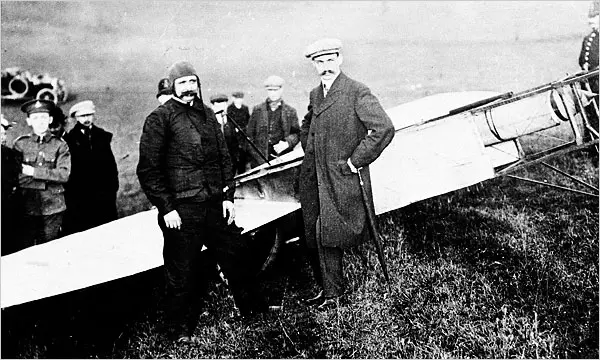Throughout history, humans have been intrigued by the idea of extending their lives, seeking the proverbial fountain of youth in practices, elixirs, and philosophies. Among these, yoga stands out as an ancient discipline that has been celebrated for its numerous health benefits. But can it truly be the key to living a long life? This question has intrigued researchers, practitioners, and the general public alike. For Daisy Taylor, a 105-year-old centenarian from Chelmsford, England, the answer seems clear.
On her 105th birthday, Taylor shared her perspective in an interview with the BBC. Her secret? A blend of yoga, a positive outlook, and gratitude for life’s small joys. She emphasizes that yoga has been instrumental in maintaining her mental agility. Even now, she practices regularly—though often from the comfort of a chair rather than a mat. Taylor's journey is a testament to yoga's adaptability, showing that the practice evolves with the individual, catering to their needs at any stage of life.
Taylor is not an isolated case. The yoga world is rich with stories of practitioners who have not only reached remarkable ages but have done so with vitality and purpose. B.K.S. Iyengar, one of the most influential yoga teachers of modern times, is a prime example. Despite a childhood marked by severe illnesses, including malaria and tuberculosis, Iyengar turned to yoga and began practicing intensely. His dedication transformed his health and extended his life to an impressive 95 years. Similarly, his brother-in-law and teacher, Tirumalai Krishnamacharya, lived to be 100, leaving behind a legacy as the founder of vinyasa yoga. Another yoga luminary, K. Pattabhi Jois, who popularized Ashtanga yoga, lived a vibrant life until the age of 93.
The Science Behind Yoga's Benefits for the Elderly
So, what makes yoga so impactful, particularly as we age? Research provides compelling evidence that yoga can mitigate several age-related challenges. It has been shown to lower blood pressure, reduce cholesterol levels, and combat obesity—three key factors that contribute to chronic diseases. Beyond physical health, yoga also addresses mental well-being, offering tools to alleviate stress, anxiety, and depression.
Yoga encourages a holistic lifestyle, often leading practitioners to adopt healthier dietary habits and routines. This integration of mind, body, and spirit not only improves quality of life but may also slow the ageing process itself.
Yoga and Cellular Longevity
One of the most fascinating aspects of yoga is its potential impact on cellular ageing. A study revealed that yoga practitioners experienced a 43% increase in telomerase activity compared to a mere 4% increase in participants who only engaged in relaxation exercises. Telomerase is an enzyme that plays a critical role in protecting our DNA, effectively slowing the ageing process at the cellular level.
Moreover, advanced yogis have demonstrated an extraordinary ability to significantly lower their metabolic rates, akin to hibernation in animals. This state, marked by reduced heart rate, breathing, and body temperature, is thought to conserve energy and potentially extend lifespan. While this phenomenon remains an area of active research, it highlights the profound physiological changes yoga can bring about.
Yoga and Cognitive Health
Ageing often brings cognitive decline, with memory formation and learning new skills becoming increasingly challenging. This deterioration is mirrored in brain structures such as the hippocampus, which shrinks with age. However, studies have found that regular yoga practitioners tend to have a larger hippocampus and overall brain mass compared to non-practitioners of the same age.
Intriguingly, the longer someone practices yoga, the greater the benefits seem to be. For instance, one study compared 40–50-year-old meditators with non-meditators in their 20s and 30s. Astonishingly, the brain mass of the older meditators matched that of the younger non-meditators. Meditation, an integral part of yoga, appears to play a pivotal role in preserving brain health.
Yoga has also been linked to improved fluid intelligence—the ability to solve novel problems, recognize patterns, and adapt to new situations. This capability often declines with age, yet long-term yoga practitioners exhibit a notable advantage in maintaining this form of intelligence.
Does Yoga Truly Prolong Life?
While yoga's benefits for physical and mental health are well-documented, does it directly extend lifespan? A comprehensive study using data from the National Death Index and the National Health & Nutrition Examination Survey sought to answer this question. Participants who practiced yoga showed a significantly lower risk of dying within the study period compared to non-practitioners. However, when age was factored into the analysis, the mortality difference disappeared, suggesting that yoga might not directly prolong life but rather enhances its quality.
For Daisy Taylor, longevity appears to run in the family. She mentioned her 103-year-old sister and five siblings who all lived past 90. Yet, Taylor credits yoga for helping her embrace ageing with grace and courage, reducing the fear often associated with growing older.
The Allure of Yoga in Modern Times
Yoga’s appeal transcends age, geography, and culture, offering something unique to each practitioner. For the elderly, it provides gentle yet effective physical activity. For the young, it serves as a tool for managing stress and building resilience. Its versatility lies in its ability to be tailored to individual needs—whether through dynamic vinyasa flows, restorative poses, or seated breathing exercises.
In today’s fast-paced world, yoga reminds us to slow down and reconnect with ourselves. Its emphasis on mindfulness encourages us to live in the present moment, fostering a sense of gratitude and contentment. This shift in perspective can transform not only how we age but also how we experience life itself.
Yoga: A Lifestyle for All Ages
Ultimately, the question is not whether yoga can make us live longer but how it can help us live better. As Daisy Taylor’s story illustrates, yoga is less about extending the number of years in our lives and more about enriching the years we have. Whether it’s through enhancing physical health, sharpening mental faculties, or cultivating emotional resilience, yoga offers a path to holistic well-being.
In a world where the quest for longevity often leads to complex solutions, yoga stands out for its simplicity and accessibility. It requires no expensive equipment or elaborate rituals—only a willingness to explore and embrace its practices. Perhaps this is why yoga has endured for millennia, resonating with people from all walks of life.
As science continues to unravel the mysteries of ageing, yoga remains a timeless companion, guiding us towards a life of balance, vitality, and purpose. Whether or not it holds the key to longevity, one thing is certain: yoga has the power to transform how we live and age, one breath at a time.



























0 Comments